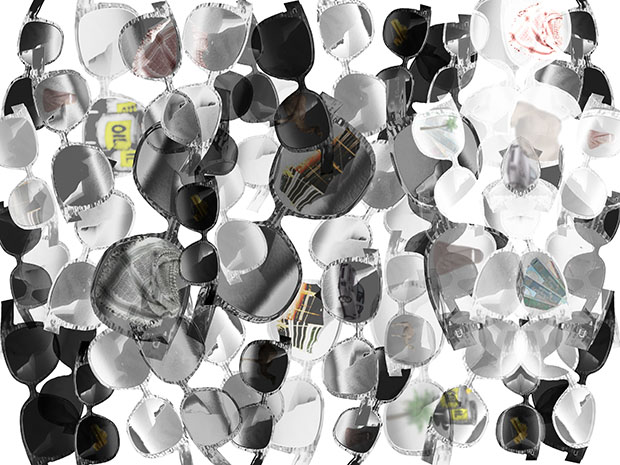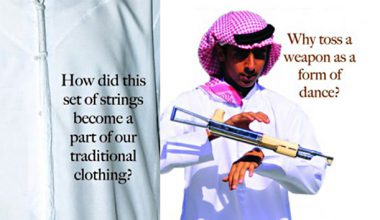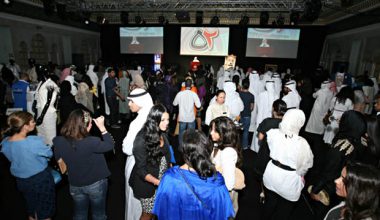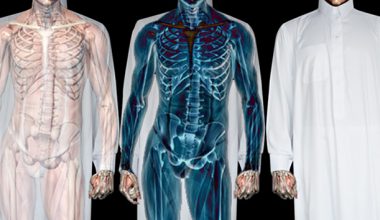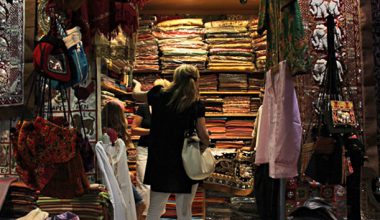
The Middle East, a region that for decades, has inspired beautiful stories such as the likes of 1001 Nights and even Disney classics such as Aladdin. Until this day, there is pending confusion as to what the Middle East is. This region is fascinating to many, and confusing to most. Considering we have now reached 2012, and with all the available technology simplifying access to information, I just have one thing to say… Seriously?!
With people constantly confusing fantasy from reality, this is what still makes the region the ultimate hub for stereotypes. Stereotypes are generalizations, or assumptions, which people make about the characteristics of all members of a group, based on an image (often wrong) about what people in that group are like.
For example, one study of stereotypes revealed that Americans are generally considered to be friendly, generous and tolerant, but also arrogant, impatient, and domineering. Asians, on the other hand, were expected to be smart and alert, but reserved. Clearly, not all Americans are friendly and generous; and not all Asians are smart.
What about Australians? The stereotypes that one hears about this region are just out of this planet. From riding kangaroos to school, to wrestling crocodiles, to the image that Australians are all tall, blonde and bronzed, that they all live either in the outback (rural areas) or on the beach
If you assume you know what a person is like, and don’t look at each person as an individual, you are likely to make errors in your guesses of a person’s character. So when it comes to Middle Easterners, the amounts of stereotypes that can be found are endless. For your viewing pleasure, we have outlined a few of the stereotypes that we have personally experienced and/or heard.
The Funny Ones
- Do you ride a camel/magic carpet to school?
- Is it true that you guys have oil wells in your backyards?
- Are you allowed to wear whatever you want?
- I heard you guys lived in tents.
- You have malls?
- Your language consists of khamana khamana KHA KHA KHA!
- We all belly dance.
The Offensive Ones:
- We are inherently violent.
- Have no respect for humanity.
- Women have no rights.
- Men are abusive.
- There’s one big war being fought and we are all in the middle of it.
- Women have to walk four paces behind their men.
So, where do stereotypes come from? And who is to blame for the boxing of people into uneducated and far from the truth categories? The ignorant, the uneducated, or ourselves?
If we approach this from a theoretical perspective, different disciplines give different accounts of how stereotypes have developed. Some psychologists may focus on an individual’s experience with groups, patterns of communication about those groups, and intergroup conflict. For example, psychologist William James cautioned psychologists themselves to be wary of their own stereotyping, in what he called the “psychologist’s fallacy”. Some sociologists focus on the relations among different groups in a social structure. They have noted that stereotypes, by definition, are exemplifications that are not accurate, but a projection of one person to another.
The topic of stereotyping is so interesting that there are a number of theories that have been derived from sociological studies of stereotyping and prejudicial thinking. In early studies it was believed that rigid, repressed, and authoritarian people only used stereotypes. This led sociologists to conclude that this had to be a result of conflict, poor parenting, and inadequate mental and emotional development. This idea has recently been overturned due to recent studies having concluded that stereotypes are common. Surely, not all of us have had bad parenting or have the emotional quota of an underdeveloped primate?
One theory as to why people stereotype is that it is apparently too difficult to take in that people can be individuals. Meaning the idea of individuality is too complex for the human mind to absorb. Even though stereotyping is inaccurate, it is an efficient way to mentally organize large blocks of information.
Categorization is an essential human capability because it enables us to simplify, predict, and organize our world. Once one has sorted and organized everyone into tidy categories, there is a human tendency to avoid processing new or unexpected information about each individual. Assigning general group characteristics to members of that group saves time and satisfies the need to predict the social world in a general sense. Take for example the idea of Arabs as being terrorists. It doesn’t matter that a small minority, a fraction of a population, was the root cause of a massive catastrophe. It is easier to box all Arabs into the category of being terrorists, and to deal with all accordingly, rather than filter through the mass population.
Another theory, that I tend to agree with most, is that people stereotype because of the need to feel good about oneself. Stereotypes protect one from anxiety and enhance self-esteem. By designating one’s own group as the standard or normal group and assigning others to groups considered inferior or abnormal, it provides one with a sense of worth. Some psychologists believe that childhood influences are some of the most complex and influential factors in developing stereotypes.
Though they can be absorbed at any age, stereotypes are usually acquired in early childhood under the influence of parents, teachers, peers and the media. Once a stereotype is learned, it often becomes self-perpetuating. The young mind is such a sponge, that children absorb and learn behaviors from very early on, and considering the family is their first source of influence, before the media, it is easy to see where learned behavior comes from.
So where does one draw the line between what is offensive and what is acceptable? What is right and what is wrong? What do we do to combat these stereotypes? Whose fault is it, our fault or theirs?
Is it fair that every time we watch shows such as 24, CSI and the likes of them, as well as movies such as Syriana, Arabs always tend to be depicted as either billionaires, princes and sheikhs (which in my opinion is an unrealistic notion) or as bombers, terrorists, hijackers, violent, gruesome, blood thirsty beings (which again is unrealistic and to be honest, it’s over being offensive, it’s plain boring).
The women on the other hand are portrayed as objectified sexual objects, sultry belly dancers, with no voice, no power, just pleasant to look at, quite the opposite of the women that we have in our societies.
Instead of playing the blame game, perhaps one should look into oneself and ask this question: how can we change stereotypes instead of slowly becoming them?
– Ghadeer Al-Otaibi

